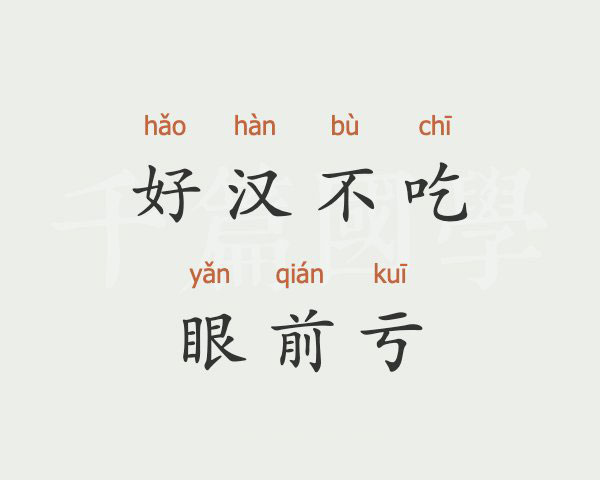How do you translate 好汉不吃眼前亏 into English?

Literal meaning of each component:
好汉 (hero, “a real man”)
不 (does not)
眼前 (“in front of the eyes” = “eyes can clearly see” = immediate / evident)
吃亏 (suffer a disadvantage)
Together: “A real man does not walk himself into an unmistakable disadvantage.”
The implication when this phrase is used in Chinese is “There is no shame in getting out of a situation of clear disadvantage”.
With this said, the register of “好汉不吃眼前亏” is somewhat sleazy and dishonorable when applying to oneself: it feels that the person saying this wanted to give himself an excuse for chickening out of a confrontation, a little bit cowardly.
On the other hand, if you are giving someone an advice trying to persuade him from being foolhardy, you can use this phrase as a justification without implying any insult.
Example:
你何必跟他计较? 好汉不吃眼前亏呀! = Do you really have to get even with him now? A wise man should know how to pick his fight.
Other potential English translations, depending on the context:
“Live and fight another day.”
“It’s not worth it.”
“Don’t be stupid – you don’t have to do this.”